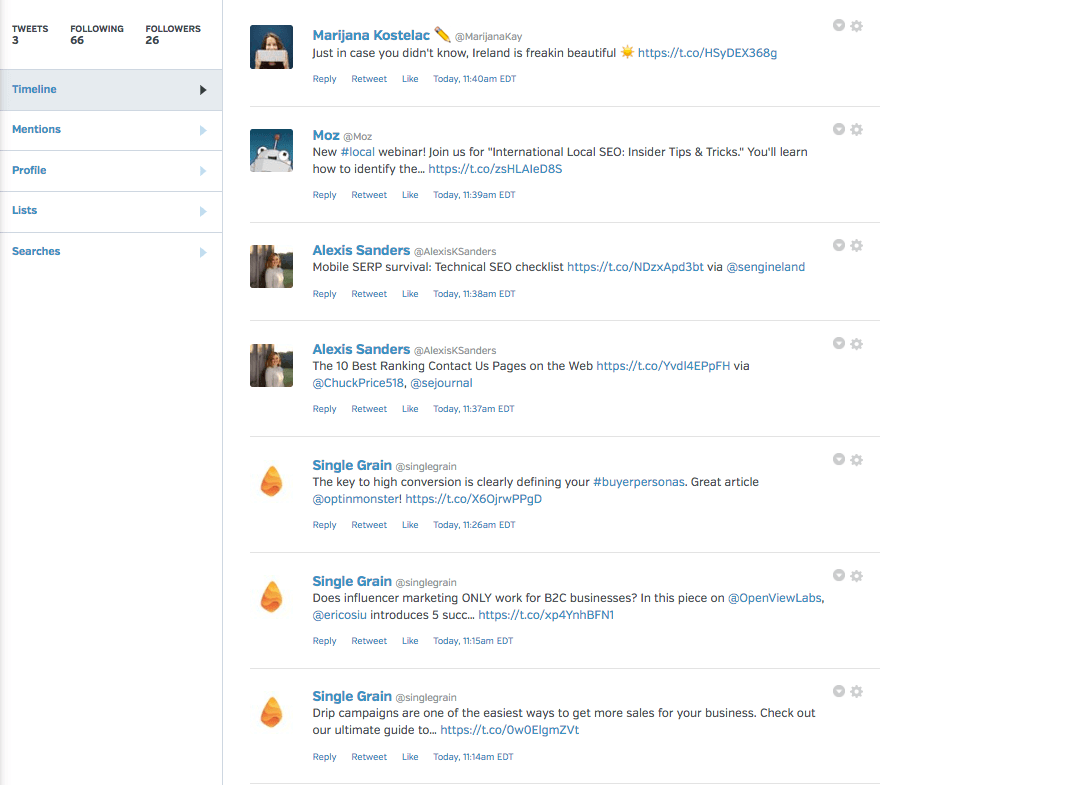The popularity of Facebook, Twitter and other social media websites has marked the beginning of the march away from the conventional business website. Where does the primary user engagement and conversion need to be, a third-party social media website or the company website?
Many businesses, especially in the SMB (Small and Medium Size Business) segment, are choosing social media platforms to run their online marketing campaigns. They are placing social media front and center, and in some cases, not even linking to their website.
There are many reasons to use social media, one of which is to position it solidly within the SEO framework. In fact, the integration of SEO and social media must occur in order for your clients to realize greater overall returns. Social media is growing by leaps and bounds and indeed a very powerful medium when used properly.
However, I believe the social media-only approach is flawed in many ways. To desert your company’s website seems short-sighted and risky, and it ultimately will leave some feeling unfulfilled in the long run. There are good reasons why social media should have a supportive role to a company website:
You own it
You rent space on Facebook, Twitter and LinkedIn. You own your website.
Basing your entire online marketing campaign around a third-party social media website is a symptom of the “putting all your eggs in one basket” syndrome.
You can make your rules
Third-party sites make their own rules, which will always be in a state of flux. If you don’t play by their ever-changing rules, they can always take the ball home. What if you are banned? What happens to your online presence then if everything is centered around that third-party site?
It has happened before, and it will happen again.
Although a different model altogether, the consequences could be similar to the 2009 eBay Partner program change, where many businesses were forced out by a new policy. The policy hurt many sites not deemed up to eBay’s quality standard that were forced out of the affiliate program. (I can’t blame eBay; they did what they felt they had to do to stay competitive.)
Facebook has an official promotion policy. Know the guidelines before your next mass promotion, and be prepared to change direction at a moment’s notice.
You’ll see more visitors
Not everyone uses social media. Even though Facebook has surpassed Google as the most visited website, there are still far more people looking for products and services using organic search over Facebook. Additionally, even though demographics are expanding rapidly for social media users, the primary audience for Facebook is still ages 18-34. Remember Facebook is a social medium by nature, not a search medium.
You’ll have greater SEO value
There is certainly an SEO value associated with social media links, as indicated by Google and Bing. But don’t forget, these links are still considered NoFollow. To realize substantial gains from an SEO perspective would most likely require some kind of “buzz factor.”
Stay tuned as the rules continue to be defined for the social media websites and their links will play in search rankings.
You can look better
Facebook’s navigation isn’t for everyone. A website can be far more visually appealing and intuitive to a customer or prospective customers than a Facebook Page.
Do we have a case of media pressures influencing decision-makers based solely on popularity, with no regard to conversion methodology, future stake or even the basic ownership premise? Even if it becomes a major component in the SEO world, which I believe it will, centering your entire online marketing around social media leaves me with an unsettled feeling.
Some may call this approach too conservative, but stopping short of making social media centroid to my online marketing efforts seems more pragmatic to me. The focus should be on a website because it leaves me with the sense that if something goes wrong, I can still “right the ship.” The core marketing framework will still be intact for me to rebuild or adjust.
How do you or your clients want to position your marketing focus?
My choice is the website, front and center.

Now social media marketers can get the credit they deserve by automatically delivering Facebook, Twitter and LinkedIn reports that prove value.





One item you left out is how design/branding fit in. You touch on it a bit when you say, “Facebook’s navigation isn’t for everyone. A website can be far more visually appealing and intuitive to a customer or prospective customers than a Facebook Page,” but there’s more to it than that.
Design should work to support your brand promise and encourage your users to take the action you want them to. With Facebook or Twitter or any other social media platform, you take what you get.
Hi Matt,
Good point, thanks. You are absolutely right, website design is very important for branding, conversion, and so much more.
As with many things using FB or Twitter, “take what you get” is the crux of the problem…
Not that the length was a factor, but my overall goal with this article was to simply look at the topic from a 30,000 foot level, raise awareness, and gauge response to determine if there is more to this than what I see.
Dan
I kinda see the future “corporate website” being a social network like Facebook and Twitter. Buddypress is a good example of such.
Hi Michael,
Great point Michael. Realistically, you can create your own “social media” with a healthy blog on the back end of any site. BuddyPress is a good example of what you can use to engage your readers, client, customers.